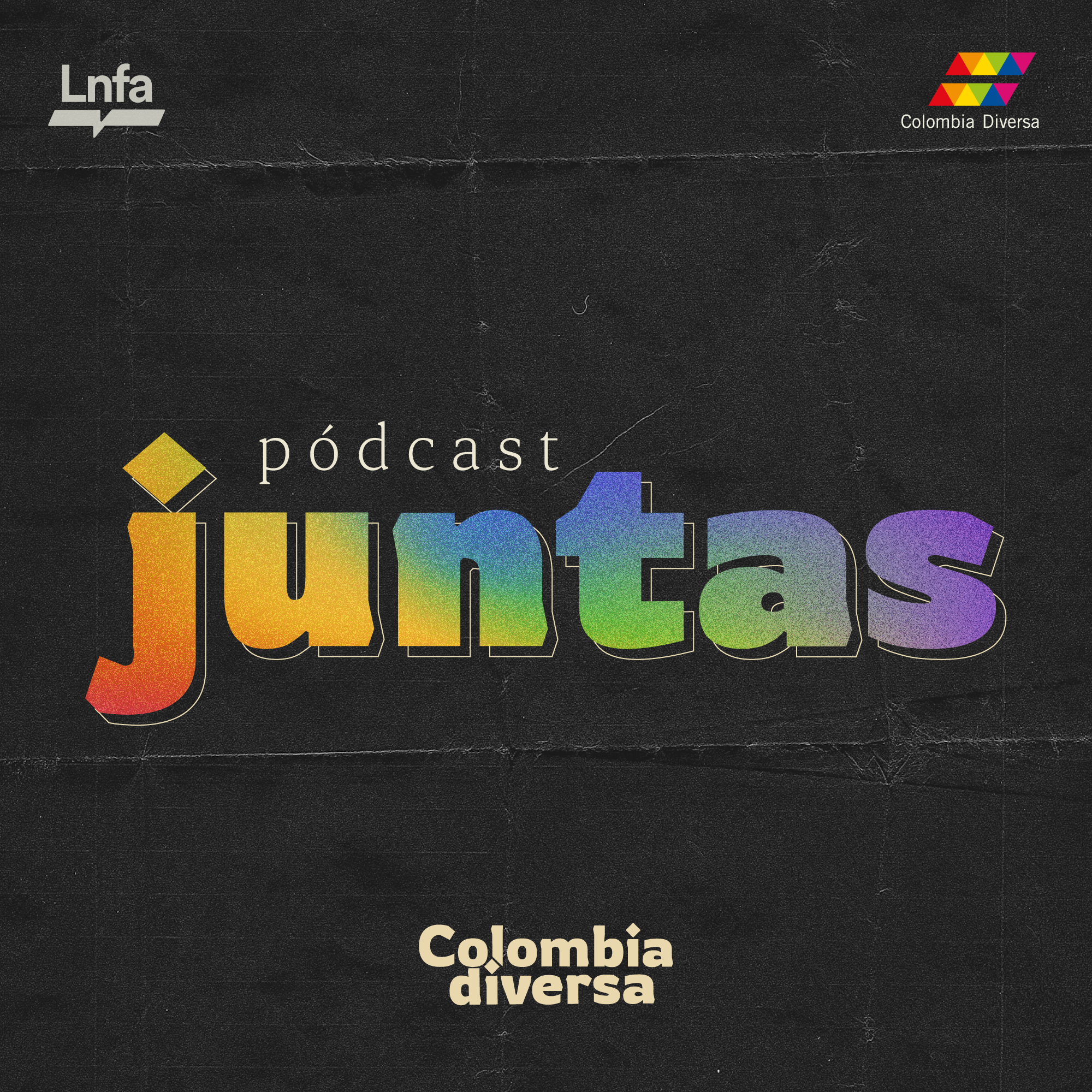Until the end of the decade 1980, Relationships between people of the same sex were considered a crime in Colombia. Nevertheless, with the constitution of 1991 The spectrum of rights was expanded and the possibility of claiming those that are fundamental through protection action.

This way, lesbian women, gay men, bisexual people and trans people, were able to access more and better tools for social mobilization.
Groups and individuals used these legal tools to demand recognition of their sexual orientation and to be within categories protected by the Constitution..
But these types of key situations in a country, to be understood in a more complete and powerful way, and for data to truly become knowledge, It is always better to know them through stories.
Like the one presented to us by the podcast Together, of Colombia Diverse, supported by the Adelante con la Diversidad II project, financed by the European Union, produced by La No Ficción Agencia and hosted by Jhonny Jiménez.
During the four chapters that make up this audio series, we are told the story of Adriana and his wife Marcela. The timeline used in the narrative is a conscious exercise that is not, exclusively, from one point to another, but it focuses on different aspects of the relationship, moves forward, backward, goes from one side to another. Appeals to tenderness and also pain. This way, Time takes on dimensions of greater amplitude and not only the distance involved in going from one year to another in a straight line..
This way we learn not only about the bureaucratic process that these two women had to go through for many years., the persecution and fight against a conservative State that opposes, but we find out how they fell in love, how one of them, who was a very young mother, she navigates what it means to find and decipher her identity as a lesbian woman. How also the process of telling your son that you were in love with a woman.
Through the episodes, marriage is shown not only as a “peak” of love, but as a legal process through which two people decide to protect themselves and project themselves, for instance, financially when one of the two is missing.
Mauricio Albarracin He was a fundamental person in this entire history of same-sex marriage in Colombia.. He says that in the years 2000 “What is beginning to happen is that LGBT organizations and activists are beginning to have more relationships with political parties” so that the first bills for same-sex couples can begin to take shape., Towards the end of the nineties and beginning of 2000. Nevertheless, At the beginning of the millennium, Congress “did not recognize same-sex couples either”. It is in this way that the podcast shows the relationship between love and the political sphere.
It was at that time that organizations such as Colombia Diversa emerged to carry out constitutional litigation activities through protections and lawsuits., that helped some rights begin to be recognized.
In 2007 A ruling from the Constitutional Court opened the doors for a de facto marital union.. "In it 2008 "The right to health and pension is recognized.", Albarracin account, "and then, in it 2009, a set of rights for same-sex couples”.
Marcela sanchez, Executive Director of Colombia Diversa, Account in Boards that they communicated with organizations such as “Dejusticia and other people” to think “seriously about a solid demand”. It was in the year 2010.
The lawsuit in which Mauricio Albarracín also participated sought to declare the article unconstitutional. 113 of the Colombian Civil Code which says that Marriage is a solemn contract by which a man and a woman join together for the purpose of living together, to procreate and help each other. There began a strong movement that began to be called Equal Marriage.
Together is available on Spotify so you can accompany Adriana and Marcela through this journey of love that is, in addition, a political journey for the rights of LGBTIQ+ people in Colombia and, why not?, from Latin America.
We use our own and third parties to obtain statistical data on the navigation of our users and improve our services. If you accept or continue navigating, We consider that it accepts its use. You can change the configuration or get more information by clicking here
Necessary cookies are absolutely essential for the website to function properly. This category only includes cookies that guarantee basic functionalities and security features of the website.. These cookies do not store any personal information.
Cookies that may not be particularly necessary for the operation of the website and that are used specifically to collect personal data from the user through analysis, Ads and other embedded content are called non-necessary cookies. It is mandatory to obtain the consent of the user before executing these cookies on your website.